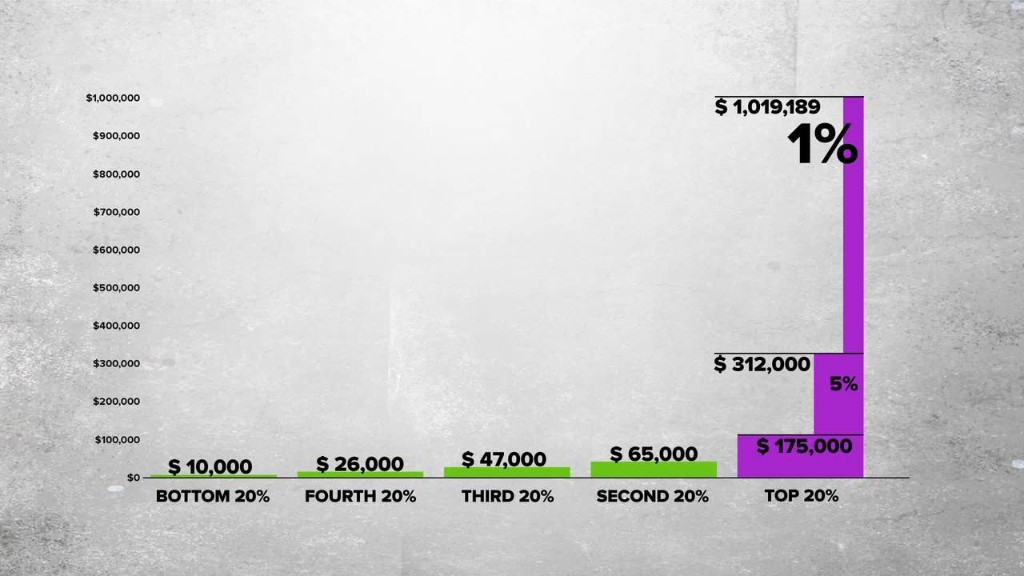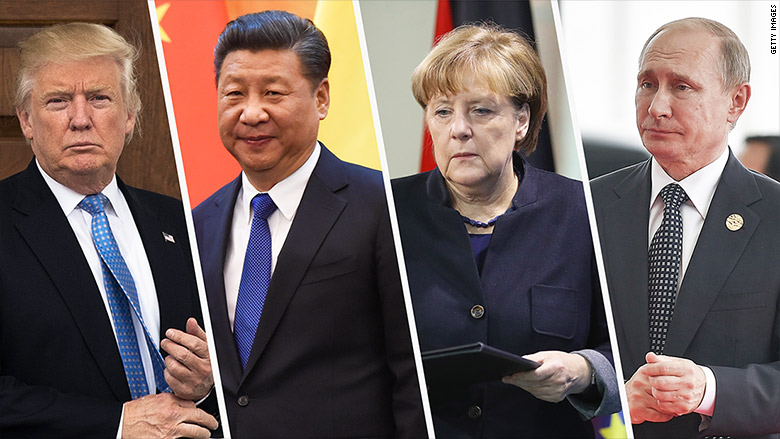
If you thought last year was rough, just wait: 2017 promises to be a year of extreme risk.
Weak economic growth, rising inequality, wild weather, data fraud, anti-establishment politics and forced migration are just some of the potential flashpoints highlighted by the World Economic Forum ahead of its annual meeting in Davos.
And then there's Donald Trump. The president-elect is an unpredictable political force who could dramatically change U.S. priorities at home and abroad.
Here's a list of 2017's biggest risks, according to WEF, Eurasia Group and Control Risks.
An inward turn for the U.S.?
Trump has criticized NATO allies for not spending enough on defense, promised to scrap free trade agreements and questioned U.S. involvement in conflicts abroad.
Trump's approach amounts to a rejection of "American exceptionalism," the idea that the U.S. should actively promote democracy, civil rights and the rule of law around the world, according to Ian Bremmer, president of Eurasia Group.
Related: Obama got tough on China. It cost U.S. jobs and raised prices
Bremmer said Trump sees international cooperation in purely transactional terms: "If there's not an obvious, near-term benefit for the U.S. ... it's not something the U.S. should be doing."
An American retreat from the world stage is bound to cause problems for its allies.
"The fact that the country that has been the linchpin of the global order since [World War II] is no longer available for service, that is absolutely the top risk in the world today," added Bremmer.

Angry voters
Widening gaps between rich and poor, and old and young, are fueling feelings of resentment.
WEF said that while inequality between countries has been decreasing over the past 30 years, inequality within many developed nations -- including the U.S. and Britain -- has risen. The group pointed to Brexit and Trump's election as clear signs of a backlash against the status quo.
"Rapid changes of attitudes in areas such as gender, sexual orientation, race, multiculturalism, environmental protection and international cooperation have led many voters -- particularly the older and less-educated ones -- to feel left behind in their own countries," the WEF said in its annual risk report.
Related: Brexit: 18 months that will shape the U.K.'s future
In Europe, France, Germany and the Netherlands will all hold major elections in 2017. Populist and eurosceptic parties could make major gains, and further undermine the region's precarious political balance.
China - opportunity or risk?
China has a lot to worry about in 2017. Trump has threatened Beijing with punishing tariffs and even questioned the U.S. position that Taiwan is part of "one China."
Experts say the relationship between the world's two biggest economies could change radically in 2017.
Despite real policy differences, the two powers have avoided major conflicts in the past in order to protect their crucial trade and investment relationship.
"As of January, when Trump takes the oath of office, the feeling is no longer mutual," wrote Andrew Gilholm and Michael Moran of the consultancy Control Risks.
Related: Why Trump poses 'single biggest risk' to the global economy
The analysts said it's unclear how the relationship will play out should Trump implement the anti-China policies he promised during the campaign.
"Leaders in Beijing are vastly more experienced, but we have little precedent for how they may react if pushed and provoked by the U.S. on issues where China is most sensitive," Moran and Gilholm wrote.
Russian disruption
A reduced geopolitical role for the U.S. could further embolden Moscow to "act as a rogue and disruptor," said Bremmer.
And President Vladimir Putin won't be chastened by allegations that he ordered Russian intelligence agencies to disrupt U.S. elections.
"He'll hack away at the French and other upcoming European votes. And the West won't want or be able to muster a serious response -- Trump's not interested, and EU leaders are either too weak or tired of sanctions," Bremmer said.


